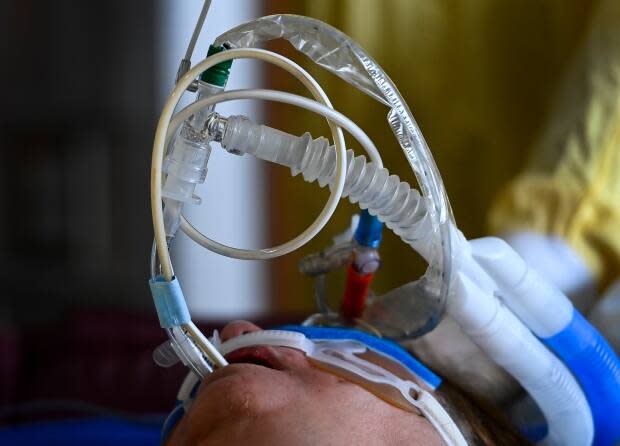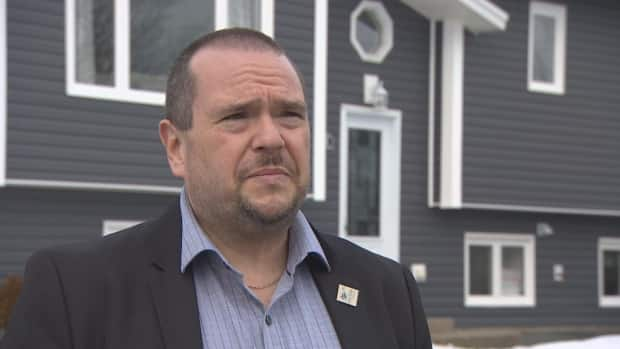N.L. might have enough ventilators, but union worried it's short on people to operate them

As the number of hospitalized COVID-19 patients rises, so too does the need for ventilators — and the people who know how they work.
And that, according to one union, is an urgent problem.
The Association of Allied Health Professionals, which represents respiratory therapists, says their members were already stretched thin prior to the pandemic. It penned a scathing open letter to the Liberal government Thursday, claiming the union's pleas for help have been roundly ignored.
"It's not access to ventilators, but access to the respiratory therapists needed to operate them that's the real risk right now," the letter said.
Union president Gordon Piercey told CBC News he's hearing from some of the 60 respiratory therapists in Newfoundland and Labrador, worried about how the province will handle a spike in people admitted for breathing issues.
"They worry about their patients. They worry about their coworkers working that night shift, and they're worried about what they're going to face the next morning when they go in," Piercey said.
"We are really concerned about what the plan is. If we have increased hospitalizations due to COVID, what that will look like."

There aren't any contingencies he's aware of if those therapists are sent to quarantine or fall ill themselves, he says.
Piercey says his members often work 12-hour shifts without a break, running between departments. If enough of them are forced to stay home, he wonders how treatment could continue.
"They will do the work, probably to their own detriment, their own ... mental health and wellbeing," he said. "But that's not good enough."
As an outbreak in the most populous part of the province continues to spread coronavirus variant B117, patients have found themselves facing delays when seeking emergency care.
Eastern Health has said its staff at Health Sciences Centre in St. John's is pushed to its limits this week, as COVID patients flock there for treatment and upwards of 300 health-care workers remain in isolation.
For weeks prior to the outbreak, the province had no more than one person in the hospital at a time. Now it has ten, according to the Department of Health, with five of those in intensive care.
Therapists fear worst-case scenario
Staffing shortages continue to plague the regional health authorities, with some medical workers told they may be summoned to fill gaps left by those completing a quarantine period.
It's especially noticeable in long-term care centres, like Pleasantview Towers in St. John's, said Yvette Coffey, president of the Registered Nurses' Association of N.L.
"They are looking at people with skill mix," said Coffey. "They are looking at people with the experience to redeploy back to Pleasantview Towers."
"We've been a year into this pandemic and we feel like some of these conversations probably should have happened before this," Piercey said, indicating that the union wrote to the premier's office Monday to request a discussion.
"It's now after lunch on Thursday and we still haven't heard a thing ... I've never experienced us treated that way by any former administration of government."
Later Thursday afternoon, the premier's office issued a statement to CBC News, saying Premier Andrew Furey and Health Minister John Haggie — both in caretaker roles until votes are counted in March — had acknowledged the union's concerns and offered to set up a meeting.
"We are happy to meet as representatives of the Liberal Party," the statement said, "respecting the caretaker government convention currently in place."
"I think everyone's worst-case scenario right now is this pandemic accelerating to a point where health-care resources are going to become very, very strained," Piercey said.
"We want to have this conversation ... And we don't want to be caught in a situation where we're trying to catch up after things have gone astray."

